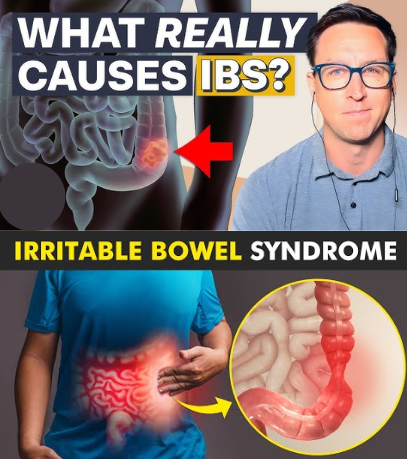
Understanding Irritable Bowel Syndrome
Have you ever experienced ongoing stomach cramps, bloating, or unpredictable trips to the bathroom that disrupt your daily life? If so, you may be dealing with Irritable Bowel Syndrome (IBS). IBS is a common digestive disorder that affects the large intestine. Unlike more severe bowel diseases, it doesn’t cause permanent damage, but the discomfort and lifestyle impact can be significant. The challenge with IBS is that it’s not one-size-fits-all—its symptoms vary widely, and so does its management.
What Exactly Is IBS?
IBS is considered a functional gastrointestinal disorder. This means that the digestive tract looks normal but doesn’t work the way it should. The exact cause is unclear, but experts believe it involves a combination of abnormal gut contractions, nerve sensitivity, and changes in how the brain and gut communicate. While IBS can be frustrating, it’s not life-threatening, and with the right approach, it can be managed effectively.
Common Causes and Triggers
IBS doesn’t have one single cause. Instead, several factors may contribute to flare-ups:
- Gut muscle contractions – Stronger or weaker contractions affect digestion speed, leading to diarrhea or constipation.
- Nervous system imbalance – Heightened sensitivity in the gut nerves amplifies normal digestive signals, causing pain.
- Gut microbiome changes – An imbalance in gut bacteria may contribute to IBS.
- Infections – Some people develop IBS after severe stomach infections.
- Food sensitivities – Certain foods, like dairy, caffeine, fatty meals, or gluten, can trigger symptoms.
- Stress – While not the cause, stress often worsens IBS symptoms.
Think of IBS like a miscommunication between your gut and your brain—the signals get crossed, leading to discomfort and irregularity.
Symptoms of IBS
IBS symptoms vary but often follow recurring patterns. The most common include:
- Abdominal pain or cramping, often relieved after a bowel movement
- Bloating and excessive gas
- Diarrhea, constipation, or alternating between both
- Mucus in the stool
- An urgent need to use the bathroom
- A sensation of incomplete bowel movements
IBS is classified into subtypes depending on the dominant bowel pattern: IBS-D (diarrhea-predominant), IBS-C (constipation-predominant), or IBS-M (mixed).
Video : What is IBS? (Irritable Bowel Syndrome)
How Doctors Diagnose IBS
There’s no single test for IBS. Instead, doctors diagnose it by:
- Reviewing medical history – Looking at symptoms and patterns.
- Physical examination – Checking for abdominal tenderness or irregularities.
- Rule-out tests – Blood tests, stool tests, or colonoscopy to exclude conditions like Crohn’s disease, celiac disease, or infections.
The Rome IV criteria are commonly used, requiring recurring abdominal pain for at least one day per week over the last three months, along with changes in bowel habits.
Treatment and Management Options
While IBS cannot be cured, it can be managed with a combination of lifestyle adjustments, diet changes, and medications.
- Dietary management
- Try a low FODMAP diet, which eliminates fermentable carbs that trigger gas and bloating.
- Identify and avoid trigger foods like dairy, caffeine, fried foods, and artificial sweeteners.
- Eat smaller, more frequent meals to reduce stress on the gut.
- Lifestyle changes
- Exercise regularly to support digestion.
- Manage stress through meditation, yoga, or breathing exercises.
- Get consistent, quality sleep to regulate gut function.
- Medications
- Antispasmodics to reduce cramping.
- Laxatives or fiber supplements for constipation-predominant IBS.
- Anti-diarrheal medications for diarrhea-predominant IBS.
- Probiotics to balance gut bacteria.
Treatment is highly individualized, and what works for one person may not work for another.
Complications and Long-Term Outlook
IBS doesn’t damage the intestines or lead to life-threatening disease, but it can take a heavy toll on quality of life. Persistent pain, anxiety around meals, and social embarrassment from sudden bathroom needs can cause emotional stress. This makes holistic management—addressing both physical and mental health—essential.
Preventing IBS Flare-Ups
You may not be able to completely prevent IBS, but you can reduce flare-ups with consistent habits:
- Keep a food diary to track triggers.
- Stay hydrated with plenty of water.
- Limit processed foods and artificial sweeteners.
- Avoid excessive alcohol and caffeine.
- Build stress-management practices into your daily routine.
Prevention is less about eliminating IBS completely and more about learning to control it so it doesn’t control you.
Living with IBS
Living with IBS requires patience, self-awareness, and a willingness to experiment with lifestyle adjustments. Many people find that once they understand their triggers and adopt the right coping strategies, they can live normal, fulfilling lives. Support from healthcare professionals, nutritionists, and even IBS support groups can make the journey easier.
Video : Irritable Bowel Syndrome (IBS) | Clinical Medicine
Conclusion
Irritable Bowel Syndrome may not have a cure, but it doesn’t have to rule your life. By understanding its causes, recognizing symptoms early, and adopting targeted strategies—like dietary changes, stress management, and personalized treatments—you can take control. IBS is unpredictable, but with the right tools and mindset, you can reduce flare-ups and live with greater comfort and confidence. Remember, your gut is deeply connected to your lifestyle—treat it well, and it will return the favor.


